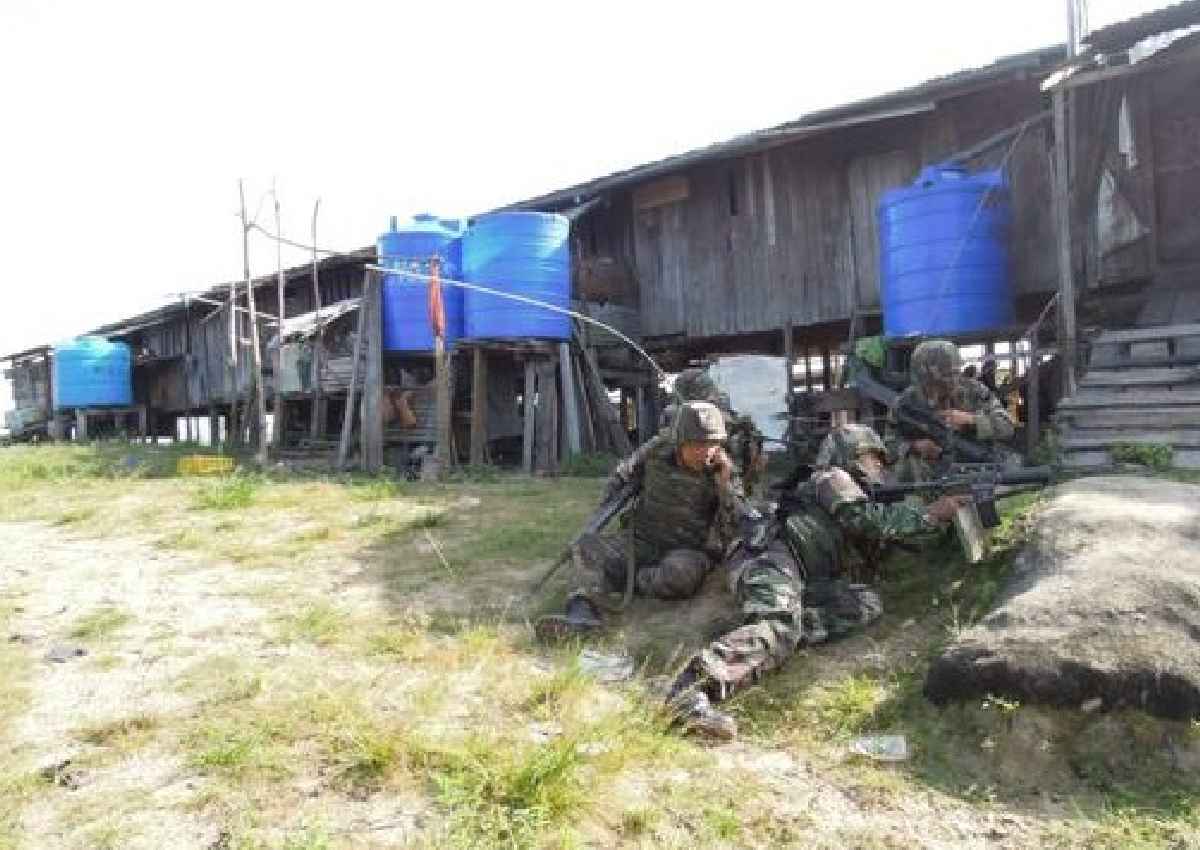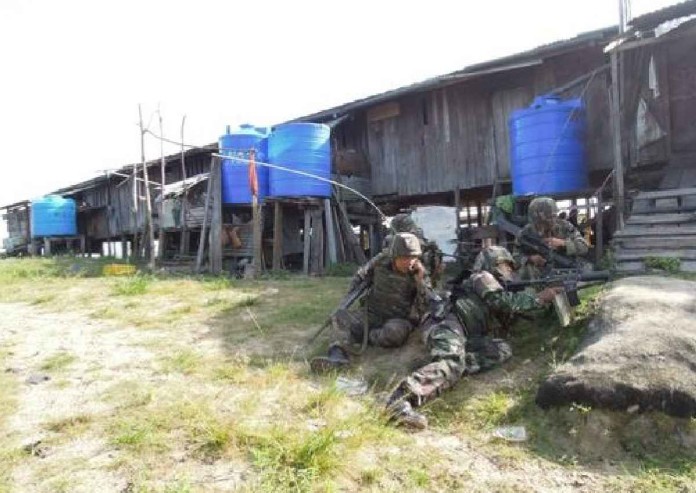KUALA LUMPUR – A Malaysian court has convicted three locals and 14 Filipinos of terror-related offences, some punishable by death, following an armed incursion that left scores dead and paralysed a remote corner of Borneo for weeks, a lawyer said Monday.
The 2013 siege, inspired by a self-proclaimed Filipino sultan who tried to resurrect long-dormant land claims, saw clashes between Malaysian forces and some 200 Filipino militants who had arrived by boat in the eastern state of Sabah on Borneo island.
The crisis embarrassed both Manila and Kuala Lumpur, shining a spotlight on the latter’s porous border and locals’ complaints of rampant illegal immigration and lawlessness.
“Following today’s high court conviction, nine of the Filipinos face an option of death sentence or life in prison. The court will make a decision on Tuesday,” N. Sivananthan, counsel for the Filipino militants, told AFP.
“I hope the nine will be spared the death sentence,” he added.
Sivananthan said among those found guilty was 53-year-old Amir Bahar Hushin Kiram, the son of the late self-styled Sulu sultan Esmail Kiram.
Esmail claimed to be the heir to the Islamic sultanate of Sulu, which once controlled parts of the southern Philippines and part of Borneo.
A total of 29 people – 26 Filipinos and three Malaysians – went on trial, with 12 Filipinos acquitted.
The others were convicted of offences ranging from “harbouring persons committing terrorist acts” to “waging of war” against Malaysia’s king.
Nine Filipinos convicted of waging war face life imprisonment or death.
Sivananthan said the three Malaysians and five remaining Filipinos face up to 30 years in prison.
Clashes between the gunmen and Malaysian forces, who launched a ground and air attack on their hideout, led to at least 70 deaths, mostly of militants.
After almost seven weeks of fighting, some of the militants fled the palm oil plantation where they had been hiding and returned to the Philippines.
A total of 800,000 Filipinos live in Sabah, making up about a quarter of the population of the state, which is just a short boat ride from the southern Philippines.
The court decision was made inside a tightly secured prison building in the resource-rich Sabah state capital Kota Kinabalu.






